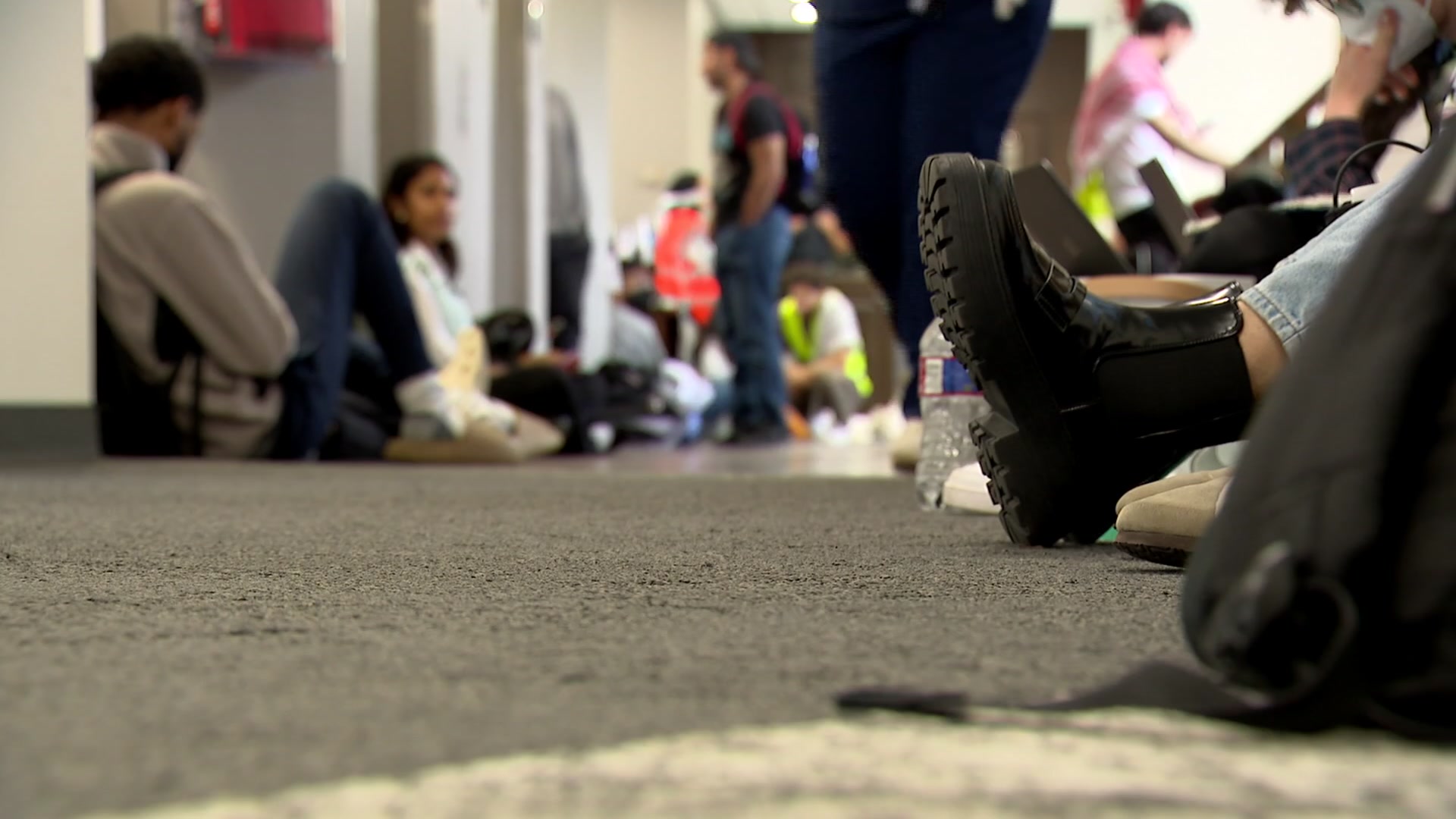Families who take care of disabled loved ones are worried that state legislators will cut programs that fund in-home care.
The effects of the state's more than $14 billion revenue shortfall are becoming clearer. A state House committee passed a bare-bones budget this week that underfunds health care programs for the needy, elderly and disabled.
A nonprofit in Rowlett, Berry Family Services, would lose state funding from the Department of Aging and Disability Services, which is overseen by the Health and Human Services Commission.
"Why we're having trouble getting it funded, I can't even fathom," co-owner Tom Berry said.
"If it's anywhere more than 2 percent or 3 percent, it means we would go out of business," he said. "There's 20,000 [people] in the HCS program. Probably 11,000 to 12,000 are in foster care. I'd probably say 10,000 or so would end up in institutions or in a box under a freeway."
Danny Mitchell receives several thousand dollars per month for the in-home care provided by his mother.
Peggy Mitchell says caring for her 26-year-old son is the only job she has time for.
Local
The latest news from around North Texas.
"His medical issues can change from one hour to the next," she said. "You might think he's doing fine, and then an hour later you've got a medical problem."
Her son was diagnosed with holoprosencephaly before birth.
Holoprosencephaly is a disorder in which the fetal brain does not grow forward and divide the way it is supposed to, according to The Carter Centers for Brain Research in Holoprosencephaly and Related Malformations.
Doctors told Mitchell her son would never hear, see, crawl, walk or talk.
Without the state funding for in-home care, Mitchell says her son will have to go into a state institution.
"If he were to be forced into a situation to where I couldn't take care of him at home and he was in a state facility, he would not survive," she said.
Laura Wimpee, who has been taking care of her son, Todd, for the last 35 years faces the same problem.
"It's very upsetting," she said. "They don't see us as people. They're just crunching numbers."
Wimpee's son has Tourette's syndrome and obsessive compulsive disorder.
"If they actually lived the life that we live and see what's goes on, I don't think this would be an issue," Mitchell said.
The state is scheduled to finish its final budget in June.



